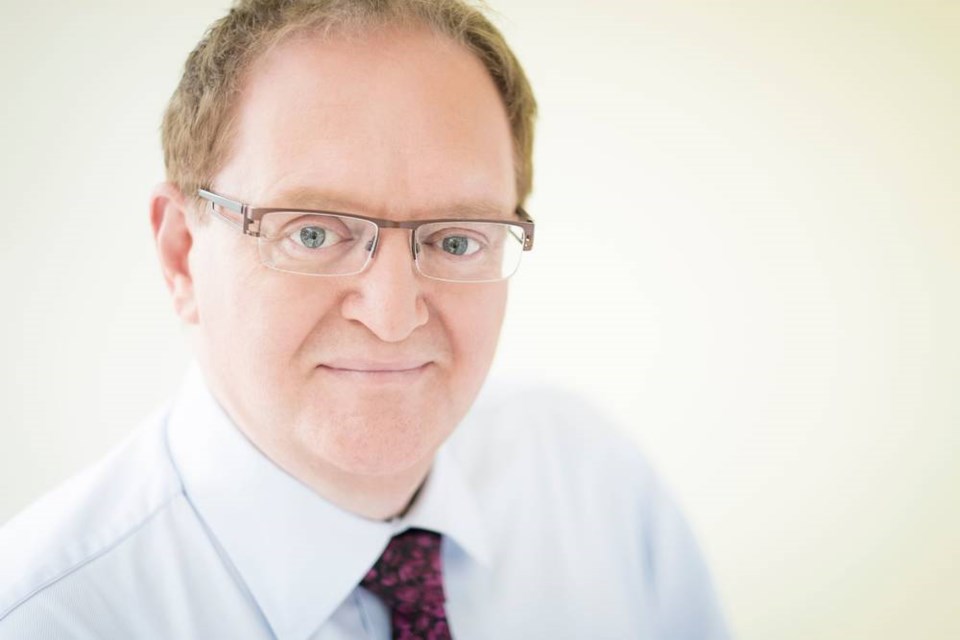Victoria residents have decided to shake things up at city hall by electing Stephen Andrew to fill a vacant council seat.
The former television journalist, who campaigned on a promise to “bring some balance back” to the left-leaning council, won the byelection on Saturday.
Unofficial results released by the city showed Andrew leading with 6,937 votes and Stefanie Hardman of Together Victoria in second place with 3,783 votes — well ahead of the other nine candidates.
“This is absolutely fantastic,” Andrew said, after taking a call from Hardman congratulating him on his victory. “You never know until you know. We knew we ran a strong campaign, we just didn’t really know how strong until we saw those numbers come in tonight.
“It’s an overwhelming majority, and I think it’s an overwhelming referendum on the fact that Victorians want a change at the council table.”
Here are the other nine candidates and their vote totals: Roshan Vickery, 603; Sean Leitenberg, 294; Bill Heflin, 286; Rob Duncan, 158; Hailey McLeod, 158; Alexander Schmid, 53; Riga Godron, 22; Keith Rosenberg, 16 and Jason Heit, 13.
Heit and Rosenberg announced part-way through the campaign that they were pulling out and endorsed Andrew, but they were too late to get their names removed from the ballot.
Former councillor Laurel Collins, who was elected with Sharmarke Dubow and Sarah Potts on the Together Victoria slate in 2018, resigned last year after winning the Victoria riding for the NDP in the federal election, triggering a byelection to fill her council seat. The vote was initially slated for April, but was postponed due to the COVID-19 outbreak.
It was the third time lucky for Andrew, who ran unsuccessfully for mayor in 2014 and narrowly missed winning a council seat in the 2018 general election.
He positioned himself in this race as a potential counterweight on a council heavily influenced by Together Victoria councillors and their like-minded allies, Ben Isitt and Jeremy Loveday.
Andrew pledged to get away from “wasting” city resources on issues outside its jurisdiction, hold the line on property taxes and to make sure the police department has the resources it needs.
He also took aim at the council’s handling of homelessness, arguing that it was a mistake for Victoria to be the only municipality in the region to allow around the clock camping in its parks during the pandemic.
The COVID-19 pandemic likely had significant impact on voter turnout, with only 17.5 per cent of registered voters casting ballots — well below 43.5 per cent turnout in the 2018 general election and the 26 per cent turnout in a 2010 byelection.
Despite that, David Black, an associate professor in the school of communication and culture at Royal Roads University, said the results “send a message to council about getting back to basics and about being concerned about some of the things Andrew has been talking about — public safety, taking a harder line on camping in parks, the city’s finances. But I think there is a clear message here.”
It’s unlikely that Andrew’s election will change council’s position on the camping issue since Coun. Geoff Young, who endorsed Andrew late in the campaign, was the only councillor to vote against allowing 24/7 camping.
But Andrew could tip the balance on decisions around the police budget where Together Victoria councillors and their allies have sometimes been at odds with the rest of council.
Victoria Mayor Lisa Helps issued a statement congratulating Andrew and welcoming him to the nine-member council.
“We’ve been working short-handed for over a year now and it will be great to have a full complement at the table for the remainder of the term,” she said. “I look forward to working with Stephen and to ensuring he gets up to speed on the critical issues that council is working on.”



